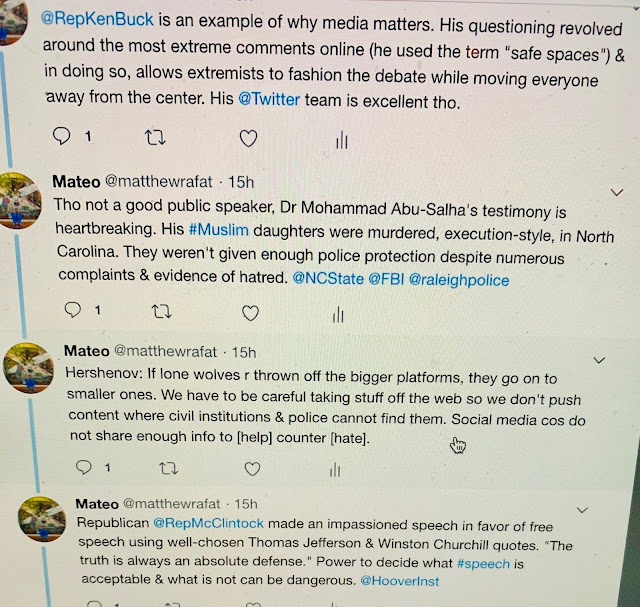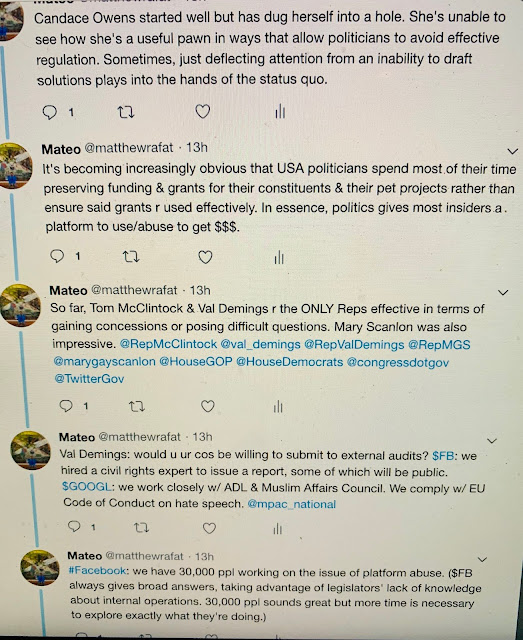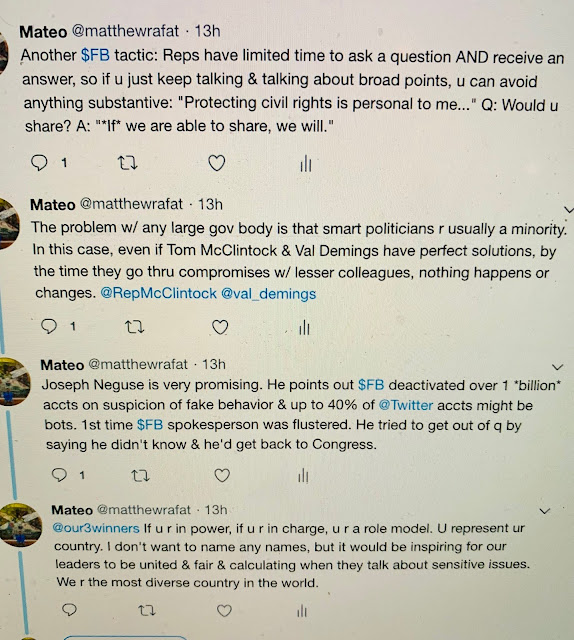You are about to read an 11-step manual on how to dissolve social cohesion. It may seem malicious to promulgate such methods, but once you realize any nation or people can become evil and callous, the need for defensive tactics becomes obvious. You don't have to follow all the steps below, but a combination applied consistently and over enough time will be lethal.
Civilizations die from suicide, not by murder. -- Arnold Toynbee
1. Promote Extremism, especially in Politics
Most people believe evil and decay enter with belligerence. In reality, too much of anything can lead to destruction. If you cannot defeat your enemy by violent means, then promote the most shallow, superficial, and/or extreme people within their societies--regardless of ideology.
Obviously, national politics is the most ideal arena, but you can start small. Look at public schools (ignore nepotism, whether formal or informal), police departments, and local governmental bodies. Even a city planning commission, if staffed by zealous nitpickers or inexperienced lawyers, can help disintegrate faith in one's fellow citizens.
Above all, review anything related to debt or inflation. A public or private bank that loans too much money to the wrong people or too little money to the right people will create problems. In peacetime, only the banking and natural resource exploration sectors have specialized instruments capable of causing as much damage as a ten-tonne bomb (see, for example, America's 2008-2009 crisis).
2. Trust, Nuance, and Context are Conjoined
Some people genuinely believe others "don't want to know how the sausage is made." Agree with them by eliminating nuance and reducing transparency as much as possible. The human mind wants to focus on single or binary data points to understand complex issues. Feed that bias using true but incomplete information. With the media becoming fully digitized and therefore subject to SEO manipulation and the highest bidder, social targeting is easier than ever before. Aim to create a lack of trust through selective reporting and/or the elevation of simplistic viewpoints.
We are pragmatists. We don't stick to any ideology. Does it work? Let's try it, and if it does work, fine, let's continue it. If it doesn't work, toss it out, try another one. We are not enamored with any ideology. -- Singapore's founder Lee Kuan Yew
3. Ignore Potential
Not actively promoting and nurturing exceptional persons is a surefire way to lose them, whether through physical departure to other nations or a loyalty shift.
Remember: immigration is a zero-sum game. If you can attract the best and brightest into your nation or group from a competitor, with each person, you create an almost insurmountable 200% gap in your favor. We universally acknowledge stealing ideas is easier than inventing them, or that not all new ideas will succeed; yet, voters seem unable to understand immigration is the exact same process, but applied to people.
You will know you have succeeded if any prominent politician mentions building a wall.
4. Use Idealists and Conformists within Minority Groups
History tells us empires fail when they openly discriminate against minorities. A wise leadership prefers instead to set extremely high or impossible standards anyone can allegedly reach, then manipulate the budgeting, promotion, and/or selection process to assist his or her friends and allies.
Prices are the new discrimination. -- Chris Rock (2017)
If journalists or others expose inconsistencies or discrimination, it is not difficult to find conformists, idealists, or egotists within the allegedly harmed group and then elevate a single person from that group while maintaining the status quo (e.g., America's President Obama).
5. Inane Distractions Thwart Substance
Promote voyeurism and gossip. Louis Brandeis said it best:
"Triviality destroys at once robustness of thought and delicacy of feeling. No enthusiasm can flourish, no generous impulse can survive under its blighting influence."
Divert the target's attention from the long-term to the trivial and short-term.
6. Attack the Artists
The smartest people in any country are usually comedians. If you can goad leaders into condemning or banning a comedian, you will cause an immediate and permanent loss of credibility. Hypocrisy is everyone's hemlock, whether governments, individuals, or corporations.
The same logic applies to authors and musicians. Stalin murdered Leon Trotsky in Mexico in 1940; the Soviet Union dissolved in 1991. Detroit's police department shut down an NWA concert in 1989; the city filed for bankruptcy in 2013. The time frames may differ, but once top level officials try to control art, enough mistakes have been made that the end is inevitable.
Interestingly, Governor Ronald Reagan assailed UCLA professor and writer Angela Davis in 1969, and California in 2019 is America's most unequal and indebted state. Also in 1969, the NYPD raided Greenwich Village's Stonewall Inn, a bar in a well-known counterculture district. According to the New York Times, six years later, New York City was so close to bankruptcy, "the city's lawyers were in State Supreme Court filing a bankruptcy petition." By the time the Establishment's list of scapegoats includes bohemians, everyone with means has packed their bags or already departed with them. (Americans will be pleased to know as of April 15, 2019, President Donald Trump has not called for the jailing, deportation, or murder of any artists.)
Civilizations die from suicide, not by murder. -- Arnold Toynbee
1. Promote Extremism, especially in Politics
Most people believe evil and decay enter with belligerence. In reality, too much of anything can lead to destruction. If you cannot defeat your enemy by violent means, then promote the most shallow, superficial, and/or extreme people within their societies--regardless of ideology.
Obviously, national politics is the most ideal arena, but you can start small. Look at public schools (ignore nepotism, whether formal or informal), police departments, and local governmental bodies. Even a city planning commission, if staffed by zealous nitpickers or inexperienced lawyers, can help disintegrate faith in one's fellow citizens.
Above all, review anything related to debt or inflation. A public or private bank that loans too much money to the wrong people or too little money to the right people will create problems. In peacetime, only the banking and natural resource exploration sectors have specialized instruments capable of causing as much damage as a ten-tonne bomb (see, for example, America's 2008-2009 crisis).
2. Trust, Nuance, and Context are Conjoined
Some people genuinely believe others "don't want to know how the sausage is made." Agree with them by eliminating nuance and reducing transparency as much as possible. The human mind wants to focus on single or binary data points to understand complex issues. Feed that bias using true but incomplete information. With the media becoming fully digitized and therefore subject to SEO manipulation and the highest bidder, social targeting is easier than ever before. Aim to create a lack of trust through selective reporting and/or the elevation of simplistic viewpoints.
We are pragmatists. We don't stick to any ideology. Does it work? Let's try it, and if it does work, fine, let's continue it. If it doesn't work, toss it out, try another one. We are not enamored with any ideology. -- Singapore's founder Lee Kuan Yew
3. Ignore Potential
Not actively promoting and nurturing exceptional persons is a surefire way to lose them, whether through physical departure to other nations or a loyalty shift.
Remember: immigration is a zero-sum game. If you can attract the best and brightest into your nation or group from a competitor, with each person, you create an almost insurmountable 200% gap in your favor. We universally acknowledge stealing ideas is easier than inventing them, or that not all new ideas will succeed; yet, voters seem unable to understand immigration is the exact same process, but applied to people.
You will know you have succeeded if any prominent politician mentions building a wall.
4. Use Idealists and Conformists within Minority Groups
History tells us empires fail when they openly discriminate against minorities. A wise leadership prefers instead to set extremely high or impossible standards anyone can allegedly reach, then manipulate the budgeting, promotion, and/or selection process to assist his or her friends and allies.
Prices are the new discrimination. -- Chris Rock (2017)
If journalists or others expose inconsistencies or discrimination, it is not difficult to find conformists, idealists, or egotists within the allegedly harmed group and then elevate a single person from that group while maintaining the status quo (e.g., America's President Obama).
5. Inane Distractions Thwart Substance
Promote voyeurism and gossip. Louis Brandeis said it best:
"Triviality destroys at once robustness of thought and delicacy of feeling. No enthusiasm can flourish, no generous impulse can survive under its blighting influence."
Divert the target's attention from the long-term to the trivial and short-term.
6. Attack the Artists
The smartest people in any country are usually comedians. If you can goad leaders into condemning or banning a comedian, you will cause an immediate and permanent loss of credibility. Hypocrisy is everyone's hemlock, whether governments, individuals, or corporations.
The same logic applies to authors and musicians. Stalin murdered Leon Trotsky in Mexico in 1940; the Soviet Union dissolved in 1991. Detroit's police department shut down an NWA concert in 1989; the city filed for bankruptcy in 2013. The time frames may differ, but once top level officials try to control art, enough mistakes have been made that the end is inevitable.
Interestingly, Governor Ronald Reagan assailed UCLA professor and writer Angela Davis in 1969, and California in 2019 is America's most unequal and indebted state. Also in 1969, the NYPD raided Greenwich Village's Stonewall Inn, a bar in a well-known counterculture district. According to the New York Times, six years later, New York City was so close to bankruptcy, "the city's lawyers were in State Supreme Court filing a bankruptcy petition." By the time the Establishment's list of scapegoats includes bohemians, everyone with means has packed their bags or already departed with them. (Americans will be pleased to know as of April 15, 2019, President Donald Trump has not called for the jailing, deportation, or murder of any artists.)
[Bonus, from professor Danielle Morgan, Spring 2021: "It demonstrates to me the power of comedy that former-President Trump would get so angry that he'd not come to the White House Correspondents' Dinner. He would take to Twitter and yell about Saturday Night Live. Trump spent so much of his time attacking entertainers and, in particular, comedians because he knows that comedy reaches the masses very quickly and very convincingly.]
7. Inefficient Governments Cause Problems
As religious entities moved into the government's traditional role of providing social welfare, most governments welcomed them, assuming they could provide services more cost-effectively. Yet, how many people realize religious entities have gained credibility through community services because their governments are inept or misusing their tax dollars? Or that the more influence the government allows religious entities in social services, the less one can argue in favor of separation of religion and state?
The more you can promote religion in everyday public life, the more you can fragment society. Wise governments neither promote nor denigrate religious entities in exchange for noninterference.
The 1st Amendment leaves the Government in a position not of hostility to religion, but of neutrality. The philosophy is that the atheist or agnostic... is entitled to go his own way. -- Justice William Douglas in Engel v. Vitale (1962)
8. Promote Segregation and Informational Fragmentation
Segregate different groups of people as much as you can. Most people associate segregation with racial characteristics, but separation based on wealth, education, information, or some other trait eventually leads to intractable inequality and hubris.
Heed the following Martin Luther King Jr. proclamation and do everything you can to render it untrue: "Anyone who lives inside [our country] can never be considered an outsider anywhere within its bounds."
9. Fear is Your Friend, Curiosity is Not
Of her profession, journalist Amanda Ripley once wrote, "we know how to grab the brain’s attention and stimulate fear, sadness or anger. We can summon outrage in five words or less." Notably, she states that it is "impossible to feel curious... while also feeling threatened."
Almost everyone knows the U.S. government deliberately lied to the American people and American judges in multiple egregious instances, including but not limited to the Gulf of Tonkin incident and Korematsu v. United States, 323 U.S. 214 (1944). Yet, almost no one believes psy-ops (aka propaganda) to shape public opinion and legislative action exist as regular, ongoing events. Maintain this naïveté.
 |
| Indigo Girls, 2002 |
10. If You Can Collapse a Building by Taking Down One Pillar, Don't Try to Destroy Three
The more open a society, the more fragile it is. If your paradigm assumes the executive, legislative, and judicial branches--all of them--are required for society to function smoothly, remember that only one of these branches need be corrupted or disdained to cause decline.
11. Overextend the Enemy
If you succeed using the above methods, governments and societies will be unable to ignore their problems and may defend themselves using censorship, jails, torture, and other blunt instruments. Once you are in this stage, the goal is to cause the target to overextend itself as much as possible and to abuse its power.
For example, after 9/11, America knew it could not legally torture detainees but did so anyway, in no small part because its political and military leadership specifically drafted exceptions to time-honored procedures. "Black sites" for interrogation or "extraordinary renditions," often in cooperation with other nations, eventually led to a total breakdown in decency, causing the United States to lose credibility worldwide, despite being the victim of a vicious, cowardly attack.
Abu Ghraib, the most prominent example of America's decline, occurred outside the nation's official borders as a way to escape oversight from the media and courts. The American government even argued its knowing creation of a loophole to evade judicial oversight meant it deserved the power to destroy not just the enemy, but its own checks and balances. (See also President Bush's Executive Order 13224, which "prohibited transactions not just with any suspected foreign terrorists, but with any foreigner or any U.S. citizen suspected of providing them support.")
Overextension renders a society imbalanced, leading to extreme actions becoming accepted as new norms. Shift the norm as far as you can in any direction.
12. It's Always Been the Same Old Story
All governments have the same general issues: overpopulation or underpopulation and immigration; employee unaccountability and selection; foreign capital and influence, especially in the media; debt repayments; access to resources, including sustainable food production; effective regulation of competitors, whether criminals or corporate, without endangering innovation; and security without overextension, which includes infiltrating influential groups and gaining intelligence.
If you ever find yourself thinking you've discovered something new rather than being put in a position to communicate existing and older ideas more effectively using ever-changing mediums, remember my grandmother's advice: "Don't worry so much. In the end, life is mostly eating, f*cking, and sleeping."
Good luck.















